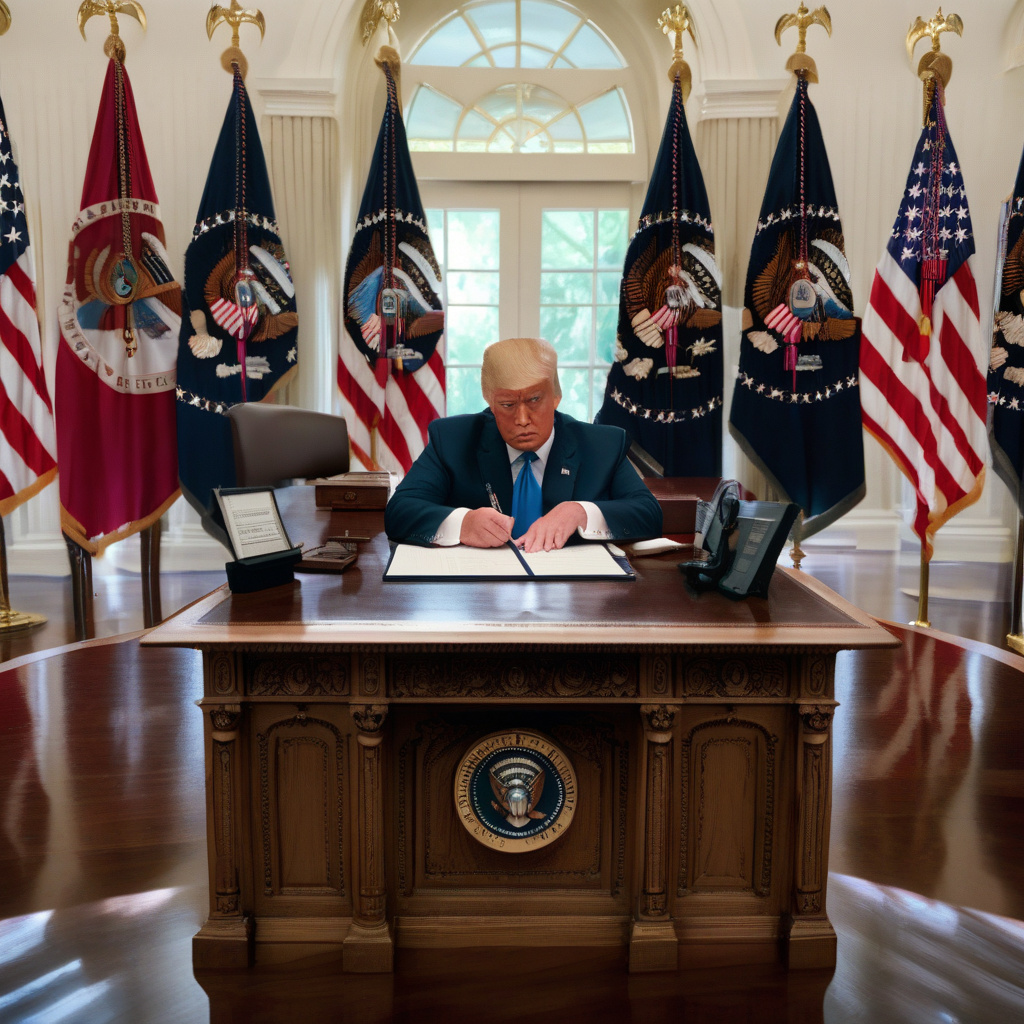Trump Signs Order Ending Duty-Free Treatment for Cheap Shipments From China
In a bold move aimed at leveling the playing field for American businesses, President Trump recently signed an order to close the trade loophole known as “de minimis.” This loophole has long been exploited by companies like Temu and Shein, allowing them to benefit from duty-free treatment on inexpensive shipments from China. However, all that is about to change, as the loophole is set to close on May 2.
The de minimis loophole has been a point of contention for many American businesses, who argue that it puts them at a disadvantage. By allowing companies to import cheap goods from China without paying duties, the loophole has made it difficult for domestic businesses to compete. This has not only affected their bottom line but has also hindered their ability to grow and innovate.
With the closure of the de minimis loophole, American businesses can now look forward to a more level playing field. By ensuring that all imports are subject to the appropriate duties, the new order aims to protect domestic companies and encourage fair competition. This move is expected to have a positive impact on a wide range of industries, from manufacturing to retail.
One company that stands to benefit from this change is Temu, a US-based manufacturer that has long struggled to compete with cheap imports from China. By closing the de minimis loophole, Temu will now be able to offer its products at a more competitive price point, without being undercut by duty-free imports. This will not only help Temu grow its market share but will also create new opportunities for innovation and expansion.
Similarly, Shein, a popular online retailer known for its affordable fashion, will also feel the effects of the closure of the de minimis loophole. With the playing field now leveled, Shein will need to adjust its pricing strategy to account for the new duties on Chinese imports. While this may initially result in higher prices for consumers, it will ultimately benefit American businesses and the economy as a whole.
Overall, the closure of the de minimis loophole marks a significant step towards fair trade practices and a more competitive marketplace. By ensuring that all companies play by the same rules, the new order will help American businesses thrive and innovate. As we look ahead to May 2, when the loophole officially closes, it is clear that this change will have a lasting impact on the business landscape.
In conclusion, the closure of the de minimis loophole is a positive development for American businesses. By ending duty-free treatment for cheap shipments from China, President Trump’s order will create a more level playing field and foster fair competition. Companies like Temu and Shein will need to adapt to these new regulations, but in the long run, this change will benefit not only individual businesses but the economy as a whole.
fairtrade, americanbusinesses, leveledplayingfield, economicgrowth, innovation












